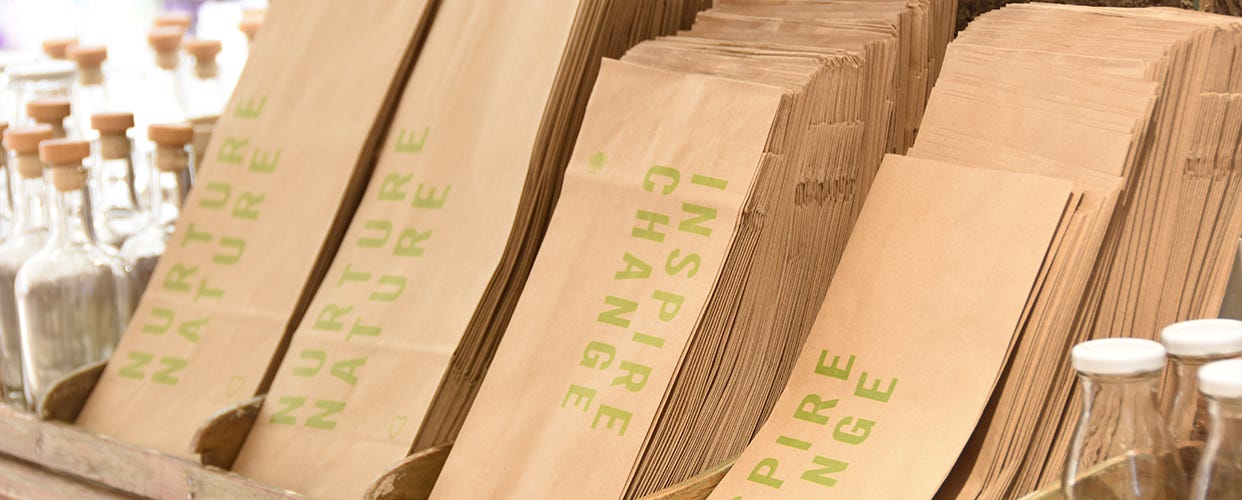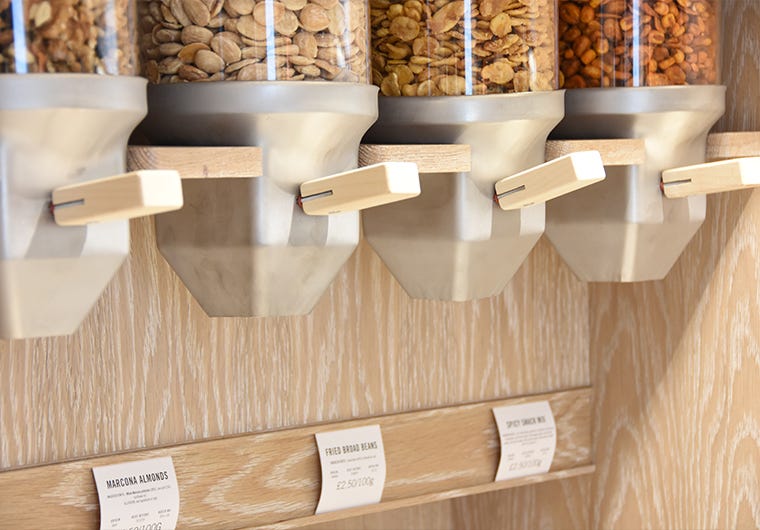
How to reduce home food waste
Food waste is one of the most avoidable environmental problems we face. Together we can take action and alleviate the strain that home food waste puts on our landfills and environment.
While the statistics around home food waste may seem bleak, there is hope in action and we believe that with simple, conscious changes, we can minimise food waste.
The whole team works hard to push Daylesford towards our goal of being a fully sustainable company everyday, ensuring we tread as lightly as we can on this planet whether by solar power or developments like our zero waste pantry and giving you the right tools and opportunities to work towards combating food waste at home.
However, we know that only gets you so far. That’s why we’ve collated tips and ideas to get you started on your journey towards sustainability and zero food waste, so when it comes to shopping and cooking you find it easier than ever to make positive changes for your family and our planet.


REFUSE, REDUCE, REUSE, REPAIR, RECYCLE, REHOME, ROT
Try to make these actions part of everyday life, without any excuses. Campaign to your local councils, retailers and communities to institute change too. Together we can make a difference.
WHIZZ UP A SMOOTHIE
Whizz up fruit, vegetables, leafy greens, milk, yoghurt and even leftover grains to create a nutritious breakfast or snack.
STORE CORRECTLY
Read the labels on packets and look up how fresh ingredients are best stored: Leafy greens like to be stored upright with their stalks in water; potatoes prefer the dark; tomatoes hate the fridge; fresh herbs like light and water; avocados are happiest in a paper bag.
FREEZE IT
Freezing is the best possible way to preserve food you don’t need rather than throwing it away – from leftover meals to sliced bread, milk, hard cheese, egg whites, frozen berries and veggies.
SUPER SOUPS & STEWS
Healthy, delicious and affordable, soups and stews have always meant to be made from leftovers and odds and ends. Combine vegetables that are about to spoil with stock, lentils, grains and cheaper cuts of meat to create whole meals.
PLAN, PLAN, PLAN
Make time to plan your meals every week and always write a shopping list that you stick to. Start with what you already have in the cupboards or fridge, and choose recipes based on these ingredients. Don’t buy more than you need or be tempted by special offers.
CREATE COMPOST
Any uncooked leftover or rotten food should go straight in your compost bin. This not only helps turn waste into something useful, but will help our soil, our insect life and consequently the health of our planet.
LOVE YOUR LOAF
Bread is our most needlessly wasted product. Don’t contribute to the 24 million slices the UK throws away every single day: Freeze it and defrost a slice at a time; whizz it into breadcrumbs; turn into a delicious pudding; make croutons; take sandwiches to work.
IGNORE ‘BEST-BEFORE’
Whilst ‘use-by’ dates should be kept in mind, especially for high-risk foods like meats, ‘best before’ dates are only a guide for retailers and relate to the quality of food which is best before a certain date. Use your own judgement and don’t throw away food which could be perfectly edible and delicious.
SHARE AND DONATE
Sign up to collection schemes to give away your leftovers to those in need. From fresh items to long life you can donate regularly or once in a while.
LOVE UGLY FOOD
There’s nothing wrong with wonky fruit and vegetables, or potatoes with the odd black mark. Simply peel or chop out the bit you don’t want to cook with and use the rest.
LOVE YOUR LEFTOVERS
Don’t throw away leftovers – pack them into the freezer, enjoy them for lunch the following day or create completely new dishes from them.
Implementing small changes can help you work towards reducing home food waste and become environmentally friendly through what you consume and how you shop. For more ideas, read our tips for a plastic free kitchen. Let’s make positive changes for the future together.
